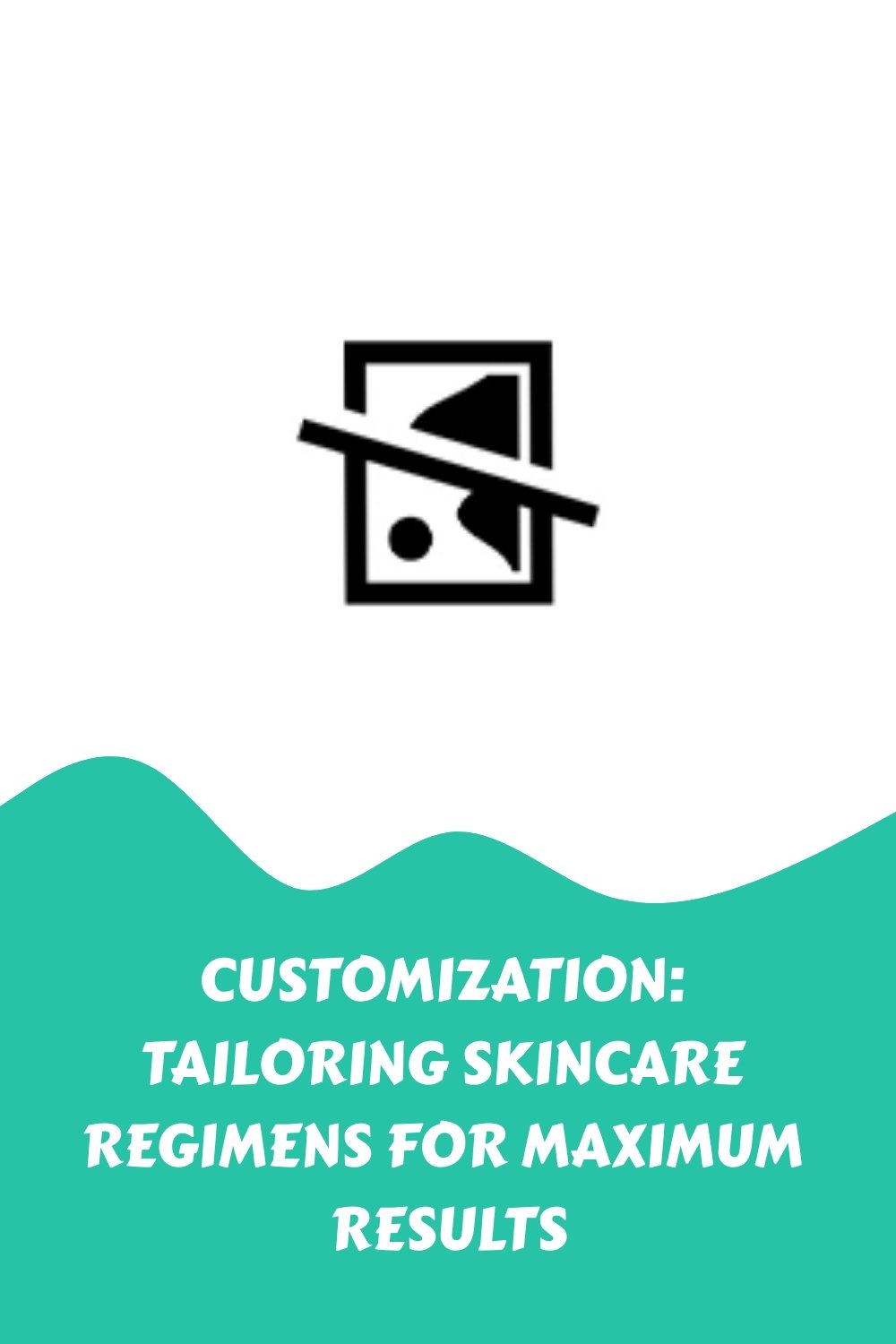In the world of skincare, one size does not fit all. Each individual has unique skin concerns, conditions, and goals, requiring personalized skincare regimens for maximum results. Customization is the key to addressing specific needs and achieving optimal skin health. In this comprehensive guide, we will explore the importance of customization in skincare, delve into the various factors to consider when tailoring regimens, and provide practical tips for skincare professionals to create personalized routines. Get ready to unlock the secrets of customization and revolutionize your clients’ skincare experiences.
1. The Power of Personalization: Why Customization Matters
Personalization is at the core of effective skincare. Every individual’s skin is unique, influenced by factors such as genetics, lifestyle, and environmental exposures. A one-size-fits-all approach is insufficient to address the diverse range of skin concerns. Customization allows skincare professionals to analyze and understand their clients’ specific needs, providing tailored solutions that target their unique concerns and maximize results.
Opportunity: For a deeper understanding of personalization in skincare, refer to our article “Personalized Skincare: The Future of Beauty.”
2. Assessing Skin Types and Concerns: The Foundation of Customization
Before creating a personalized skincare regimen, it is crucial to assess clients’ skin types and concerns. Identifying whether their skin is oily, dry, combination, or sensitive helps determine the appropriate products and treatments. Additionally, understanding their specific concerns, such as acne, hyperpigmentation, or aging, allows professionals to recommend targeted ingredients and strategies for addressing these issues.
Opportunity: Explore our article “Understanding Skin Types: A Skincare Professional’s Handbook” to gain comprehensive insights into assessing different skin types.
3. Ingredient Selection: Choosing the Right Actives and Formulations
Once the skin type and concerns are identified, selecting the right ingredients becomes paramount. Different active ingredients, such as retinol, vitamin C, hyaluronic acid, and niacinamide, address specific skin issues. Skincare professionals should be knowledgeable about the benefits and potential interactions of these ingredients, ensuring their compatibility with the client’s skin type and concerns. Choosing appropriate formulations, such as serums, creams, or masks, is equally important in delivering the desired results.
Opportunity: For a comprehensive guide on key skincare ingredients, refer to our article “Essential Skincare Ingredients: A Skincare Professional’s Handbook.”
4. Building a Skincare Routine: Customizing Steps and Order of Application
A well-designed skincare routine is a culmination of customized steps and the correct order of application. Skincare professionals must consider the specific needs of their clients when recommending cleansing, toning, exfoliation, treatment, and moisturization steps. Customization extends to the frequency of product usage and the incorporation of additional treatments like masks or serums. Educating clients about the importance of consistency and adherence to their personalized routines is crucial for achieving desired outcomes.
Opportunity: Explore our article “Crafting the Perfect Skincare Routine: A Skincare Professional’s Guide” to gain in-depth insights into building effective skincare routines.
5. Adjusting for Seasonal Changes and Lifestyle Factors
Customization is an ongoing process that should adapt to seasonal changes and lifestyle factors. Environmental conditions, such as temperature, humidity, and sun exposure, impact the skin’s needs. Skincare professionals should guide their clients in adjusting their regimens accordingly, incorporating sunscreen in the summer, and providing extra hydration in the winter. Lifestyle factors, such as stress, diet, and sleep patterns, can also affect the skin’s condition, necessitating modifications in the skincare routine for optimal results.
Opportunity: For comprehensive guidelines on seasonal skincare adjustments, refer to our article “Seasonal Skincare Transitions: A Skincare Professional’s Handbook.”
My Thoughts:
Customization is the cornerstone of effective skincare. By understanding the unique needs of each individual, skincare professionals can tailor regimens that address specific skin concerns and maximize results. Through skin type assessment, ingredient selection, building personalized routines, and adapting to seasonal and lifestyle factors, professionals can provide clients with transformative skincare experiences. Remember, customization goes beyond product selection – it involves ongoing analysis, communication, and adjustment to ensure clients’ satisfaction and long-term skin health.
Related Articles:
- “Personalized Skincare: The Future of Beauty”
- “Understanding Skin Types: A Skincare Professional’s Handbook”
- “Essential Skincare Ingredients: A Skincare Professional’s Handbook”
- “Crafting the Perfect Skincare Routine: A Skincare Professional’s Guide”
- “Seasonal Skincare Transitions: A Skincare Professional’s Handbook.”
Skin Professionals, Discover the Ultimate Blog that Transforms Your Career! Unveiling Game-Changing Tips and Secrets for Success. Plus, Exclusive Amazon Affiliate Deals Inside! Click Now to Unlock Exclusive Discounts and Supercharge Your Skincare Journey. Don’t Miss Out on Advertising Opportunities, Cutting-Edge Courses, and Exclusive Memberships. Level Up Your Skincare Expertise Today!
(*Disclaimer: We may earn a commission for purchases made through the links in this article.)
Generated with Pin Generator




